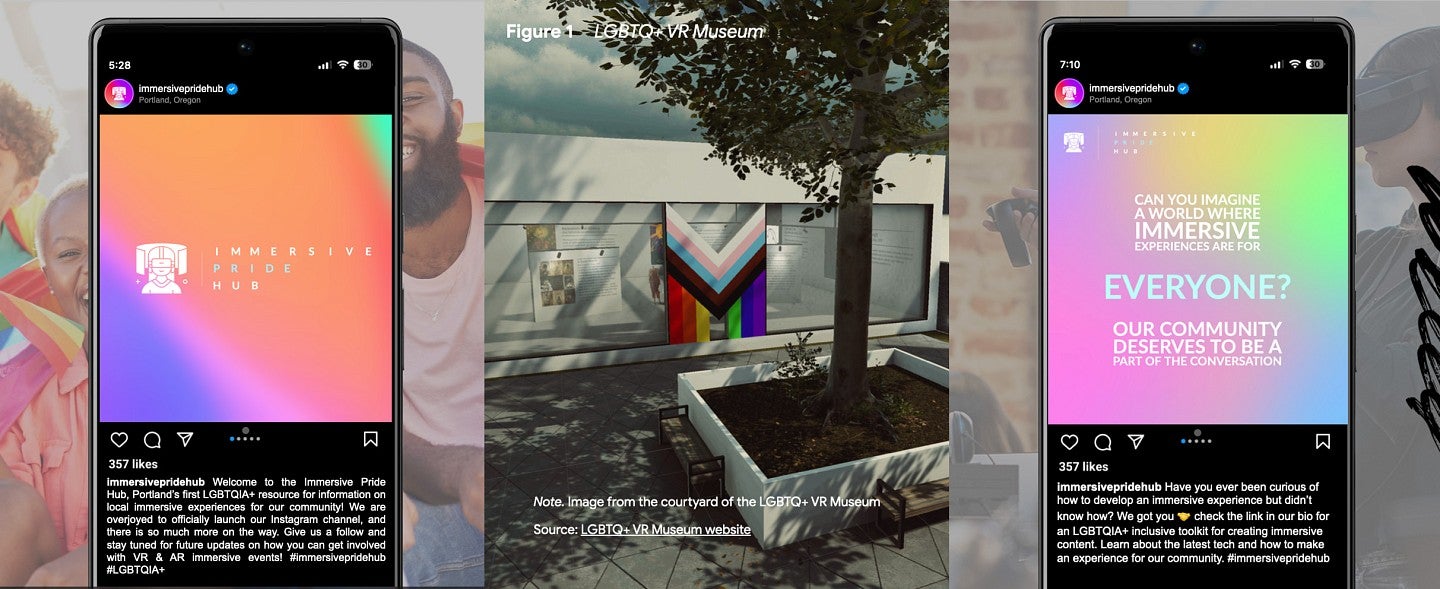
For his Strategic Communication Master’s capstone project, Collin Pullum explored the ways users of immersive media can be transported to different environments virtually. But it was a very real community that nurtured him, ultimately inspiring a capstone project that explores the Portland LGBTQIA+ population’s interest in augmented reality (AR), virtual reality (VR) and extended reality (XR).
“As a Black and biracial queer individual, it was important that my terminal project was rooted in the community that had uplifted and supported me,” Pullum said. “I had initially completed a qualitative project about how the COVID-19 pandemic had affected the drag community in Portland, which inspired me to delve deeper into understanding how immersive media could alleviate that impact in multifaceted ways.”

Pullum set out to evaluate if and how the LGBTQIA+ community was using immersive media, and what type of content existed with the community’s perspective in mind. Through surveys and extensive qualitative and quantitative research, he discovered the interest was there, even if access to the technology was not. He also discovered collective concerns about biases and stereotypes that had the potential to be built into the software.
“The results provided insights that helped me craft a thorough communication plan for how Portland organizations could create immersive experiences that ethically consider the backgrounds of marginalized populations, through collaborations with local LGBTQIA+ businesses, health facilities and institutions,” Pullum said.
His multipronged communication plan prioritizes increasing access to and awareness of immersive technologies in the LGBTQIA+ community and creating a strategic framework for building immersive experiences that consider LGBTQIA+ individuals at the forefront.
“For these technologies to be given the opportunity to enrich the lives of society, it is crucial that developers adopt ethical practices that reduce bias and harm to marginalized populations,” Pullum said. “The richness and depth of queer history is just as deserving to be embodied in an immersive environment as any other narrative.”
